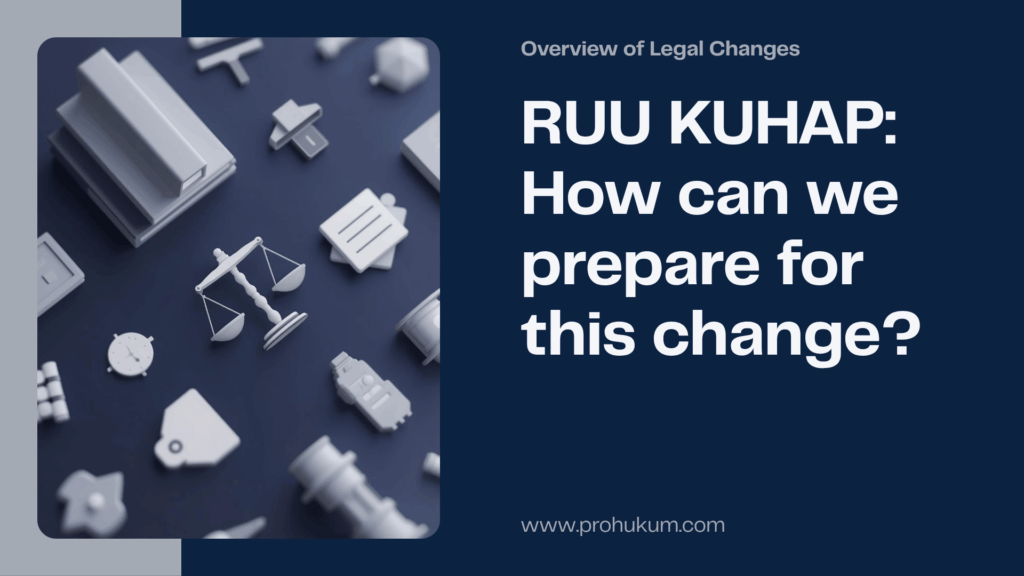
Indonesia is stepping into a pivotal chapter in its legal journey. After extensive discussions, Commission III of the House of Representatives and the government have decided to push the Criminal Procedure Bill (RUU KUHAP) forward to the plenary session set for November 18. This bill will completely revamp how investigations, arrests, surveillance, and evidence collection are handled throughout the nation.
However, as the parliamentary process picks up speed, public concern is rising just as fast. Under the hashtag #Semuabisakena, citizens, legal experts, academics, and digital rights advocates are sounding the alarm that the draft, dated November 13, 2025 might give law enforcement sweeping powers with very few checks in place.
The main worry is straightforward: if this version of the bill is enacted, anyone regardless of whether they’ve done anything wrong could face invasive actions from the state.
RUU KUHAP – A Shift in Power With Far-Reaching Consequences
The concerns arise from several provisions that many observers believe extend police authority beyond reasonable limits. The draft articles that have been made public reveal powers that could be exercised without prior judicial approval, including:
Covert interception and monitoring (Articles 1 (34) and 124)
The draft permits police to secretly access, record, and manipulate digital communications without clear boundaries or oversight. The lack of a precise definition for “interception” leaves a grey area that could be broadly interpreted.
Freezing of financial assets and digital footprints (Article 132A)
Authorities could block bank accounts and access personal online records from social media to cloud storage based solely on their investigative judgment, even before officially labeling someone as a suspect.
Seizure and prolonged storage of electronic devices (Article 112A)
Authorities can seize phones, laptops, and other digital devices and keep them for long periods, even if the owner isn’t involved in any wrongdoing. Critics point out that this opens the door for potential data manipulation or misuse.
Warrantless arrest, search, and detention
One of the most controversial aspects is the allowance for arrests, movement restrictions, and searches without solid or immediate proof of criminal activity. Civil society groups argue that this blurs the line between preventive policing and arbitrary loss of freedom.
When you look at these powers together, they reflect the public sentiment captured in #semuabisakena the feeling that anyone could be subjected to policing decisions based not on judicial oversight but on personal judgment.
RUU KUHAP – Why Critics Say the Process Feels Rushed
While Indonesia certainly needs to update its procedural laws, the existing KUHAP has faced criticism for years. Civil society organizations claim that the bill is being pushed through without enough public input. Legal experts caution that:
- Key terms are still vague or undefined, allowing for broad interpretation.
- Oversight mechanisms are lacking, especially concerning digital surveillance.
- Protections for citizens are weaker than in earlier drafts that were publicly discussed.
- Impact assessments haven’t been clearly communicated to stakeholders.
For many observers, these shortcomings indicate not just a legislative problem but a democratic one. There’s a real concern that such significant structural changes shouldn’t proceed without thorough examination, wider participation, and clearer justification.
RUU KUHAP – What’s at Stake for Everyday Citizens
The implications of this situation extend well beyond just legal theory. If the RUU KUHAP is passed in its current form, it could fundamentally change the way policing and personal privacy operate in Indonesia. Here are some potential risks we should be aware of:
- A weakening of the presumption of innocence
- Increased chances of wrongful arrests or arbitrary detentions
- More opportunities for abuse of power and extortion
- A chilling effect on free expression, journalism, and digital activism
- Greater vulnerability for marginalized communities
In short, the worry is that this bill meant to modernize law enforcement practices, might actually tip the scales of power too far in favor of the state, undermining the protections that keep citizens safe from overreach.
A Call for Transparency, Revision, and Public Dialogue
As Indonesia gears up for the plenary session, various groups within society are calling on the government to hit the pause button and take a step back for a reassessment. This isn’t about rejecting reform; it’s about demanding a more accountable process and a draft that respects rights more clearly.
Many advocates believe the President should withdraw the current version of the RUU KUHAP and encourage a more inclusive review process that involves legal organizations, digital rights groups, academics, and the general public.
Given the profound impact this bill could have on civil liberties, we simply can’t afford to rush through its approval.
Conclusion
Indonesia is at a pivotal moment. While legal reform is essential, any changes that redefine the relationship between citizens and state power must be approached with transparency, careful thought, and thorough discussion. As the draft moves toward the plenary stage, public oversight is more crucial than ever.
This is a time that demands vigilance, informed conversation, and active democratic participation. Our civil liberties depend on it.
